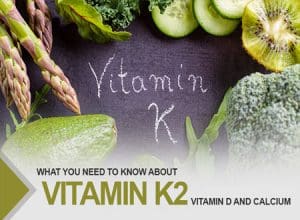



Prostate cancer, just as with breast cancer seems to be on the rise.
The following treatments I would suggest, amongst the alternative and integrative medicines available
I recommend the following protocol for the treatment and for complementing conventional treatment of prostate cancer :
Research has shown MCP to be very effective in the treatment of prostate cancer. It causes the prostate cancer cells to commit programmed cell suicide (apoptosis) and prevents them from spreading to other part of the body (metastasising).
Prostate protection formula contains all natural medicines, from herbal and vegetable extracts, scientifically found to provide protection from developing prostate cancer and aiding in its treatment. Prostate Protection Formula contains the following active ingredients:
Your well being formulations (yourwellbeing.co.za) contains :
i3C & DIM Complex 100mg Capsules (60)
Curcumin 500mg Capsules (60)

.Beta-sitosterol inhibits prostate cancer growth and triggers programmed prostate-cell suicide (apoptosis) in test-tube human prostate cells (in vitro) (Awad et al.2005). Research shows that supplementing with beta-sitosterol significantly improves urinary symptoms associated with prostate cancer. (Berges et al. 1995, 2000; Klippel et al. 1997; Wilt et al.1999; Lichtenstein & Deckelbaum, 2001)
Resveratrol inhibits prostate cancer growth and triggers programmed prostate-cell suicide (apoptosis). It also sensitises cancer cells to chemotherapeutic agents, making the chemotherapy more effective.
Clinical trails have shown that melatonin supplementation (10-50mg/ day in the evening) increased survival times, tumour response rates and quality of life in many types of cancer, including lung cancer (Lissoni et al. 1992).
Melatonin also increases the efficacy and reduces the toxicity of chemotherapy (Lissoni et al., 1995).
(Studies show that with Research also indicates that vitamin D has anti-tumour effects and decreases the incidence of multiple cancers (Gaby, 2011).
Research shows that EGCG (Green Tea Extract) has potent anti-cancer affects against prostate cancer cells (Bettuzzi et al. 2006; Jian et al. 2004; Jatoi et al. 2003).
If on Chemotherapy add the following to the regimen:
Always remember the possibility of IV and interstitial photodynamic therapy, which can be hugely effective therapies, offered at Dr Golding Medical practice.
Other Integrative treatments offered at Dr Craige Golding Medical practice include IV vit C, ozone, detox therapies and other Integrative medicine technologies.
References:
http://www.ncbi.nlm.nih.gov/pubmed/20462856
http://www.ncbi.nlm.nih.gov/pubmed/14663471
http://www.ncbi.nlm.nih.gov/pubmed/11134980
http://www.ncbi.nlm.nih.gov/pubmed/20043266
http://www.ncbi.nlm.nih.gov/pubmed/18029471
http://www.ncbi.nlm.nih.gov/pubmed/17004889
http://www.ncbi.nlm.nih.gov/pubmed/16491481
http://www.ncbi.nlm.nih.gov/pubmed/15456642
http://www.ncbi.nlm.nih.gov/pubmed/15664307
http://www.ncbi.nlm.nih.gov/pubmed/15664307
http://www.ncbi.nlm.nih.gov/pubmed/21179458
http://www.ncbi.nlm.nih.gov/pubmed/21261654
http://www.ncbi.nlm.nih.gov/pubmed/21306166
http://www.ncbi.nlm.nih.gov/pubmed/21177307
http://www.ncbi.nlm.nih.gov/pubmed/20971741
http://www.ncbi.nlm.nih.gov/pubmed/20718984
Watch Dr. Golding talk on Integrative and Anti-Aging Medicine.
Sign up for our newsletter to find out more about the exciting world of integrative medicine
